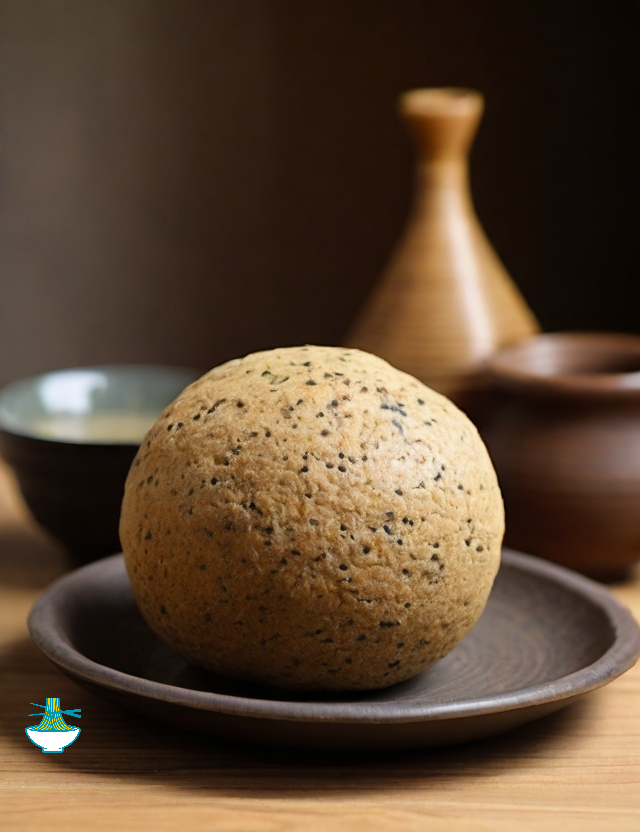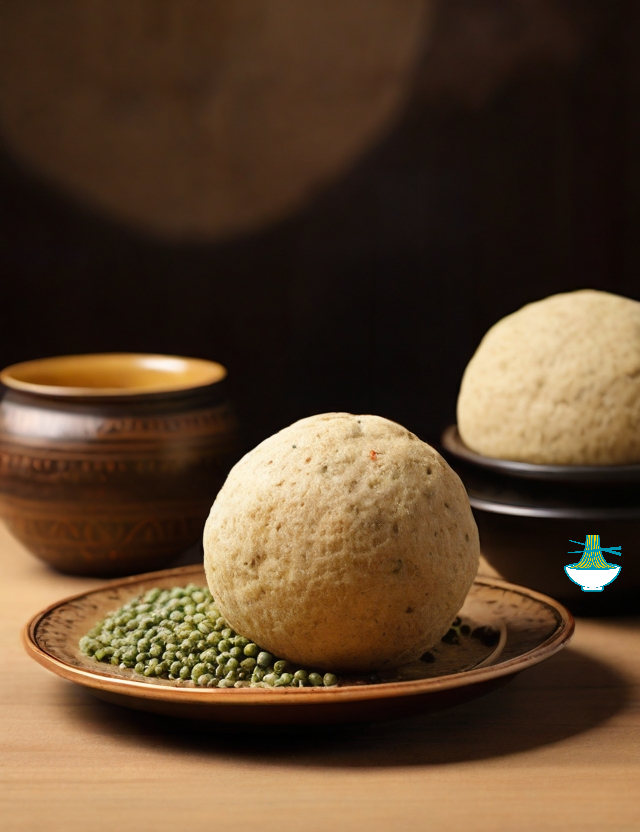Embark on a culinary journey to Burkina Faso, where the rich tapestry of culture and tradition is intricately woven into the fabric of daily life. Among the many gastronomic treasures this West African nation has to offer, one dish stands out as a symbol of communal joy and shared meals – Boule. A cherished and time-honored recipe, Boule is more than just a dish; it's a celebration of flavors, a testament to the vibrant culinary heritage of Burkina Faso.
In this exploration of Burkina Faso's culinary landscape, we delve into the heart of Boule – a hearty and flavorful staple that has graced the tables of families for generations. Join us as we unravel the secrets behind this traditional dish, discovering the unique blend of ingredients and techniques that make Boule a true embodiment of Burkina Faso's culinary prowess. From the bustling markets to the warmth of family kitchens, Boule invites you to savor the essence of Burkina Faso's cultural identity through a delightful gastronomic experience.

Ingredients:
- 2 cups millet or sorghum flour
- 1 cup water
- Pinch of salt
- Cooking oil (for greasing hands)
- Warm water (for shaping)
Instructions:
Prepare the Flour:In a large mixing bowl, sift the millet or sorghum flour to ensure a smooth and lump-free dough.
Create a Well:Make a well in the center of the flour, creating a crater-like space for the water.
Mix the Dough:Gradually add water to the well while stirring the flour in a circular motion. Continue mixing until the dough starts to come together.
Kneading:Once the dough forms, transfer it to a clean, floured surface. Knead the dough for about 10-15 minutes or until it becomes elastic and smooth.
Shape into a Ball:Form the dough into a large, round ball. This will be your "Boule." If the dough is too dry, you can add a little warm water, one tablespoon at a time, until it reaches the desired consistency.
Let it Rest:Cover the dough ball with a clean cloth and let it rest for about 30 minutes. This allows the gluten to relax and the dough to become more pliable.
Preheat the Oven:Preheat your oven to 350°F (180°C).
Grease Hands:Grease your hands with a bit of cooking oil. This prevents the dough from sticking to your hands during the shaping process.
Shape the Boule:Take small portions of the dough and roll them between your palms to form smaller balls. Arrange these balls in a circular pattern, building up to create the Boule shape.
Baking:Place the shaped Boule on a greased baking sheet and bake in the preheated oven for about 25-30 minutes or until the surface turns golden brown.
Serve with Soup:Once baked, allow the Boule to cool slightly. It is traditionally served with a hearty soup, such as a vegetable or meat-based soup.
Enjoy:Dive into the rich flavors and cultural significance of Burkina Faso Boule. Break off a piece, dip it into the accompanying soup, and savor the authentic taste of this West African culinary delight.
Experience the warmth and communal spirit of Burkina Faso with each flavorful bite of this traditional Boule recipe.
Nutritional Values
Providing specific nutritional values can be challenging without exact quantities and brands, but I can offer some general information about the nutritional components of the main ingredients used in the Burkina Faso Boule recipe:
Here are the approximate nutritional values for each ingredient in the recipe:
Millet or Sorghum Flour (2 cups)
- Calories: 860
- Protein: 20g
- Fat: 6g
- Carbohydrates: 176g
- Fiber: 12g
benefits:
- Rich in Nutrients: Both millet and sorghum are high in essential nutrients, including protein, fiber, and various vitamins and minerals.
- Gluten-Free: These flours are naturally gluten-free, making them suitable for people with celiac disease or gluten intolerance.
- High in Antioxidants: Millet and sorghum contain antioxidants that help protect the body against oxidative stress and inflammation.
- Supports Digestive Health: The high fiber content aids in digestion, preventing constipation and promoting a healthy gut.
- Energy Boosting: These grains are a good source of complex carbohydrates, providing sustained energy release.
Water (1 cup)
- Calories: 0
- Protein: 0g
- Fat: 0g
- Carbohydrates: 0g
- Fiber: 0g
benefits:
- Hydration: Essential for maintaining hydration and overall bodily functions.
- Temperature Regulation: Helps regulate body temperature through sweating and respiration.
- Nutrient Transportation: Assists in the transport of nutrients and oxygen to cells.
- Detoxification: Aids in flushing out toxins and waste products from the body.
- Skin Health: Promotes healthy, glowing skin by keeping it hydrated.
Salt (Pinch, approximately 0.5g)
- Calories: 0
- Protein: 0g
- Fat: 0g
- Carbohydrates: 0g
- Fiber: 0g
- Sodium: 195mg
benefits:
- Electrolyte Balance: Helps maintain the balance of electrolytes in the body, which is crucial for nerve and muscle function.
- Hydration: Assists in maintaining proper hydration levels by balancing fluid levels in the body.
- Flavor Enhancement: Enhances the taste of food, making it more enjoyable.
- Preservation: Acts as a natural preservative, helping to extend the shelf life of foods.
Cooking Oil (for greasing hands, approximately 1 teaspoon)
- Calories: 40
- Protein: 0g
- Fat: 4.5g
- Carbohydrates: 0g
- Fiber: 0g
benefits:
- Healthy Fats: Provides essential fatty acids that are important for brain function and overall health.
- Vitamin Absorption: Helps in the absorption of fat-soluble vitamins (A, D, E, K) from foods.
- Heart Health: Certain oils, like olive oil, are rich in monounsaturated fats which can support heart health by reducing bad cholesterol levels.
- Anti-Inflammatory Properties: Some oils, like olive oil, have anti-inflammatory properties that can help reduce inflammation in the body.
- Energy Source: Provides a concentrated source of energy.
Warm Water (for shaping)
- Calories: 0
- Protein: 0g
- Fat: 0g
- Carbohydrates: 0g
- Fiber: 0g
benefits:
- Digestion: Helps improve digestion and can soothe and activate the digestive tract.
- Circulation: Warm water can help improve blood circulation.
- Detoxification: Assists in the body's natural detoxification processes.
- Relaxation: Warm water can help relax muscles and soothe aches and pains.
- Hydration: Maintains overall hydration, which is essential for all bodily functions.
Total Nutritional Values
- Calories: 900
- Protein: 20g
- Fat: 10.5g
- Carbohydrates: 176g
- Fiber: 12g
- Sodium: 195mg
These values are approximate and can vary slightly based on the specific brand and type of ingredients used.


Comments